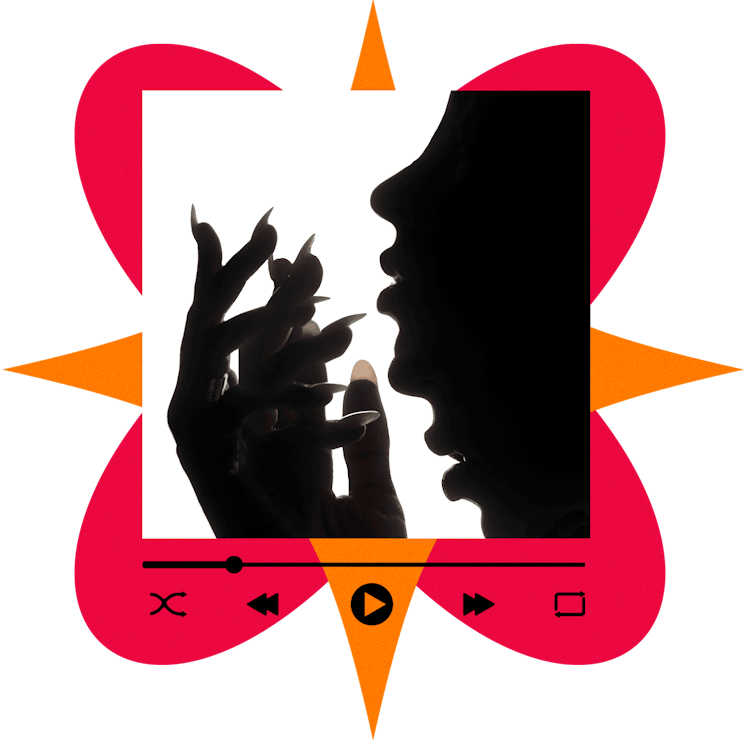
I’ll Never Forgive Y’all For Sleeping On Tinashe’s Nightride
When Tinashe’s in control, she’s otherworldly.
In Elite Daily’s I’ll Never Forgive Y’all, editors explain why underrated albums of the last decade deserved better. Here, Adrianne Reece reacquaints herself with Tinashe’s roster of mixtapes — most notably, a brilliant release that was overshadowed by her disorienting relationship with her former label: 2016’s Nightride.
Tinashe knows how to turn her music videos into an independent horror film. She’s the mesmerizing siren viewers root for, even if her catalog of characters — a white-eyed vampire, a enigma who lures her love interest to his death, a bloody butcher, and a red-lipped dominant with a penchant for murder and tied-up stuffed bears — are a bit ruthless. (And when not in her villain arc, she’s going viral for being a drone-fighting mechanic on “Nasty.”) Tinashe’s eeriest role came in 2016’s Nightride; however, she didn’t transform into a fictional anti-hero in that visual. Instead, she was the exhausted “final girl” trying to defeat her scariest monster: her then-label, RCA Records.
“I’m so sick of appeasing people,” Tinashe began the six-minute Nightride video, her eyes void of emotion. The camera’s tightly focused on her face, almost as if to force viewers to digest the hidden message in her monologue. Her words unfurl into a lesson about embracing a “f*cked up situation,” before cutting to a clip of her younger self belting: “Get me out of here!” She’s then forced into a plastic body bag, and after desperately clawing to freedom, several unknown hands suddenly grasp her face. With unnerving precision, those hands begin to tilt and pose her features to their liking. And with a weary sigh, Tinashe follows their every instruction.
It’s a claustrophobic tango of creative control, one that feels similar to the singer’s past relationship with RCA. Tinashe signed with the label in 2012, released her atmospheric debut album — 2014’s Aquarius — and began working on her second project, Joyride, shortly after. She had originally aimed to release it in 2015, but the label delayed its arrival for two more years. In that hiatus, Tinashe lifted the veil on the inner workings of Joyride’s rollout, alluding that RCA was watering down her vision for the album.
“I definitely have a slightly sour taste in my mouth about that whole process,” she told The Face in December 2019. “When [Joyride] came out, I was over it. I felt it poisoned that entire project.” To hold fans over, Tinashe released Nightride — a project she also revealed to the publication that RCA “didn’t support.”
Though a mixtape, this 15-track sound bath could’ve easily been hailed as an album. She tuned into herself — seemingly the only person who would nurture and explore her creativity with care — and produced a project that felt natural to her. On Nightride, she isn’t the manufactured pop artist she claimed RCA wanted her to be. Instead, she’s pre-label Tinashe: a star who melted oddly satisfying beats and sultry one-liners in the comfort of her home studio. (I’m still in awe that she created her dreamiest hit, “Ecstasy,” in her bedroom.)
As someone who first discovered Tinashe through her 2013 mixtape Black Water — specifically, the mesmeric sighs of “Midnight Sun” — on SoundCloud, hearing Nightride felt like reuniting with an old friend. On her three pre-RCA mixtapes, Tinashe embraced the soft but darker riffs of alt-R&B, her voice teetering between breathless gasps and warm runs that never overshadowed the production. She continued that tradition on her debut album; however, it lingers with a more memorable allure on Nightride.
The record was received well with critics; however, it came and went without much recognition. (Even Billboard noted this release was overlooked, and I agree.) On the opener “Lucid Dreaming,” Tinashe reflects on her career, weaving anxious memories of traveling and perfecting her craft into the background’s wooden chimes. The twinkling percussion disappears on “C’est La Vie” and “Sunburn,” the latter creeping in like a comforting ghostly shadow.
In the second half of Nightride, Tinashe briefly retires her slow groove for a slight uptempo. There’s the trap-infused “Sacrifices” (where she ominously reminds listeners that she “will not be ignored”), the winking “Company,” and psychedelic grittiness of “Party Favors.” Fast forward to now, and she has more than enough special treats to pass around at the function.
Though a dimly-lit project, it illuminates during “Soul Glitch.” Led with wintry synths and Tinashe’s distorted melodies, she confronts someone who continuously brings the darkness out of her. It’s starting to weigh her down, hence the drowsy rasp in her normally warm vocal tone. While the most stunning track on the tape, “Soul Glitch” felt like the last time she grappled with this much exhaustion as an artist. Nearly three years after Nightride’s release, Tinashe announced her split from RCA in February 2019.
This divorce opened a fruitful door for her; according to W Magazine, she also parted ways with her entire team — officially cementing herself as an independent artist. Since then, she’s self-released three impressive albums and curtly demolished her once greatest threat with one sentence: “We just didn’t need them.”
To me, Nightride always served as a glimpse of how Tinashe’s career would’ve flourished if she had more creative control under a label. It was a glorious sight then, and even more of a blissful revisit now that she’s receiving newfound attention.